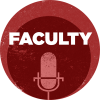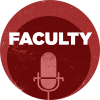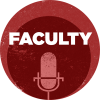Dave Moecher, Professor and Department of Earth & Environmental Sciences Chair, is a 2013 recipient of the University of Kentucky's Ken Freedman Outstanding Advising Award which is given each year to one professional and one faculty adviser. The candidates are nominated by students and the award, named in honor of Ken Freedman, who served as a professional adviser at UK for 15 years, recognizes outstanding service in the field of…
Podcasts
Most of us associate mapping with cartography, but that's not always the case. The Committee on Social Theory is presenting a graduate-level course on mapping this semester and Jenny Rice, assistant professor in the Division of Writing, Rhetoric and Digital…
Technology in the classroom is often discussed in terms of solving issues of scale—the rise of massively open online courses just being the largest of examples. Perhaps though, technology may serve the most good when it's scaled to student needs.
Daniel Weiner doesn’t just have one degree from the University of Kentucky but three—the last of which is a Ph.D. in statistics. From UK, Weiner transitioned into a career within the pharmacometrics field where he is now a Senior Vice President at the Certara Corporation offering scientific software and consulting services to the pharmaceutical industry.
Creative expression and disease aren't two topics that are often juxtaposed, but UKC 310: Art and Epidemics, will explore five diseases from a creative and technical angle: tuberculosis, AIDS, cancer, alcoholism, and the plague - through a variety of creative lenses, including film, short fiction, poetry, and art. Rita Basuray and Katherine Rogers-Carpenter will co-teach the fall 2013 course, looking at the parallels between scientific and creative writing, and where these forms diverge.
This podcast was…
Later this spring, Professor Karen Petrone will begin teaching a new 7-week class as part of this year's Passport to the World Program: Reimagining Russia’s Realms. The class, A&S: 100 - War & Peace in Russia's Realms will explore the Russian and Soviet experience of World War I, the Russian Civil War, and World War II through literature, film, and history. Additionally, students will have the opportunity to discover Russian author Leo…
In May 2013, ten students will go to Costa Rica to do ethnographic writing for English 205: Advanced Composition. Steve Alvarez of WRD is taking the group to the town of Heredia for four weeks. The course meets the graduation requirement for writing, and will include service learning opportunities and plenty of cultural experiences. For more information about taking this class, please contact the instructor.
This…
How many languages do you speak? Benjamin Kinsella is fluent in English, speaks Spanish, and now also knows touch of Guaraní. He graduated from UK in December of 2012, and worked with Professor Haralambos Symeonidis of the Hispanic Studies Department on a linguistic atlas project, Atlas Lingüístico Guaraní-Románico. The Atlas documents instances of language contact between three languages in South America: Spanish, Portuguese and Guaraní…
The fight for human rights isn't over - and one A&S alum is at the forefront of advocacy for individuals in the criminal justice system. Stephen Bright graduated from the University of Kentucky with degrees in law and political science, and is the President and Senior Counsel for the Southern Center for Human Rights…
Amanda Fickey, a University of Kentucky doctoral candidate was recently granted a year long research fellowship by the Central Appalachian Institute in Research and Development. The Institute, located in Pikeville, Kentucky, focuses heavily on improving educational access and issues of economic development in the Central Appalachian region.










